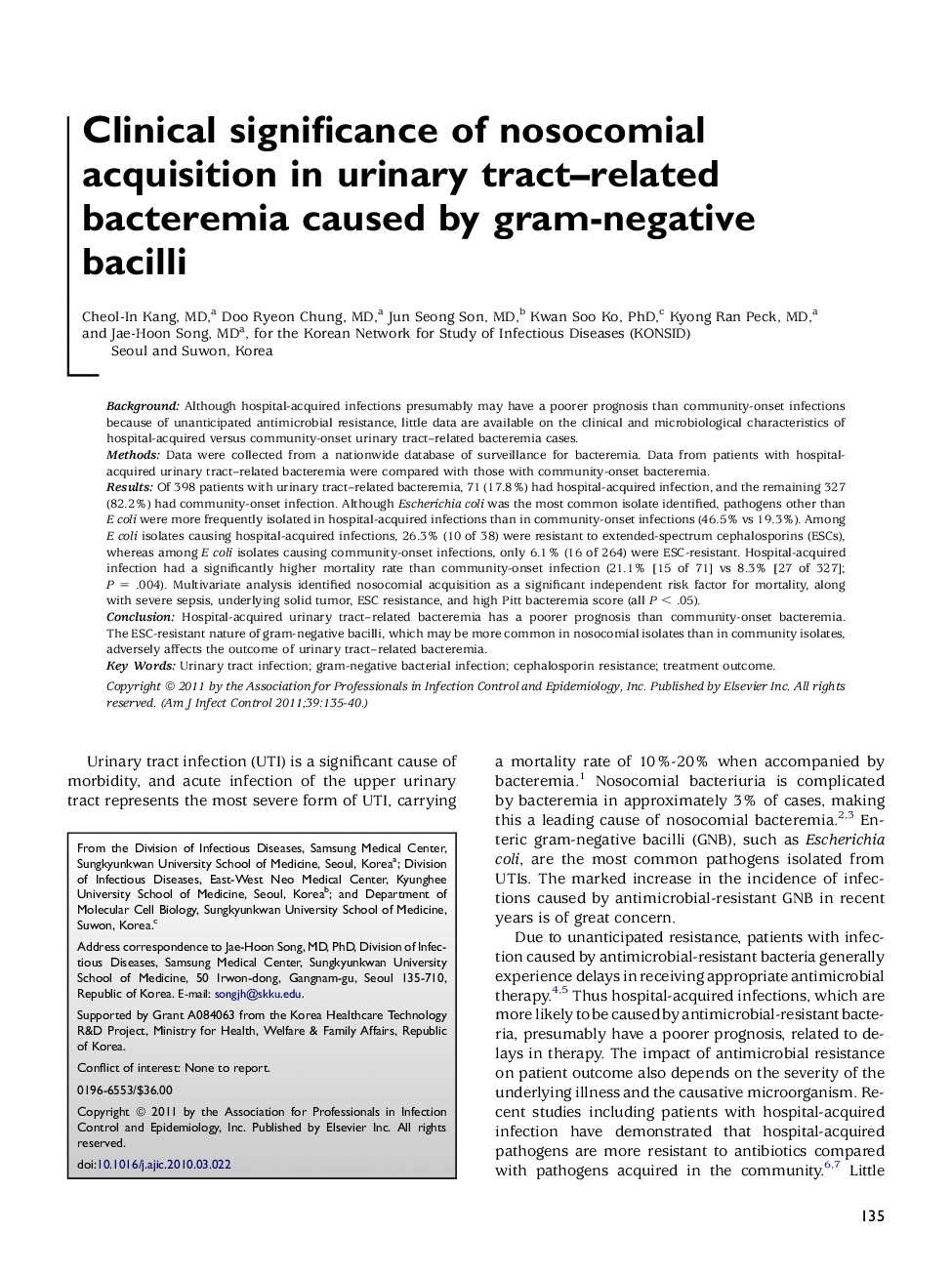| کد مقاله | کد نشریه | سال انتشار | مقاله انگلیسی | نسخه تمام متن |
|---|---|---|---|---|
| 2638354 | 1563527 | 2011 | 6 صفحه PDF | دانلود رایگان |

BackgroundAlthough hospital-acquired infections presumably may have a poorer prognosis than community-onset infections because of unanticipated antimicrobial resistance, little data are available on the clinical and microbiological characteristics of hospital-acquired versus community-onset urinary tract–related bacteremia cases.MethodsData were collected from a nationwide database of surveillance for bacteremia. Data from patients with hospital-acquired urinary tract–related bacteremia were compared with those with community-onset bacteremia.ResultsOf 398 patients with urinary tract–related bacteremia, 71 (17.8%) had hospital-acquired infection, and the remaining 327 (82.2%) had community-onset infection. Although Escherichia coli was the most common isolate identified, pathogens other than E coli were more frequently isolated in hospital-acquired infections than in community-onset infections (46.5% vs 19.3%). Among E coli isolates causing hospital-acquired infections, 26.3% (10 of 38) were resistant to extended-spectrum cephalosporins (ESCs), whereas among E coli isolates causing community-onset infections, only 6.1% (16 of 264) were ESC-resistant. Hospital-acquired infection had a significantly higher mortality rate than community-onset infection (21.1% [15 of 71] vs 8.3% [27 of 327]; P = .004). Multivariate analysis identified nosocomial acquisition as a significant independent risk factor for mortality, along with severe sepsis, underlying solid tumor, ESC resistance, and high Pitt bacteremia score (all P < .05).ConclusionHospital-acquired urinary tract–related bacteremia has a poorer prognosis than community-onset bacteremia. The ESC-resistant nature of gram-negative bacilli, which may be more common in nosocomial isolates than in community isolates, adversely affects the outcome of urinary tract–related bacteremia.
Journal: American Journal of Infection Control - Volume 39, Issue 2, March 2011, Pages 135–140